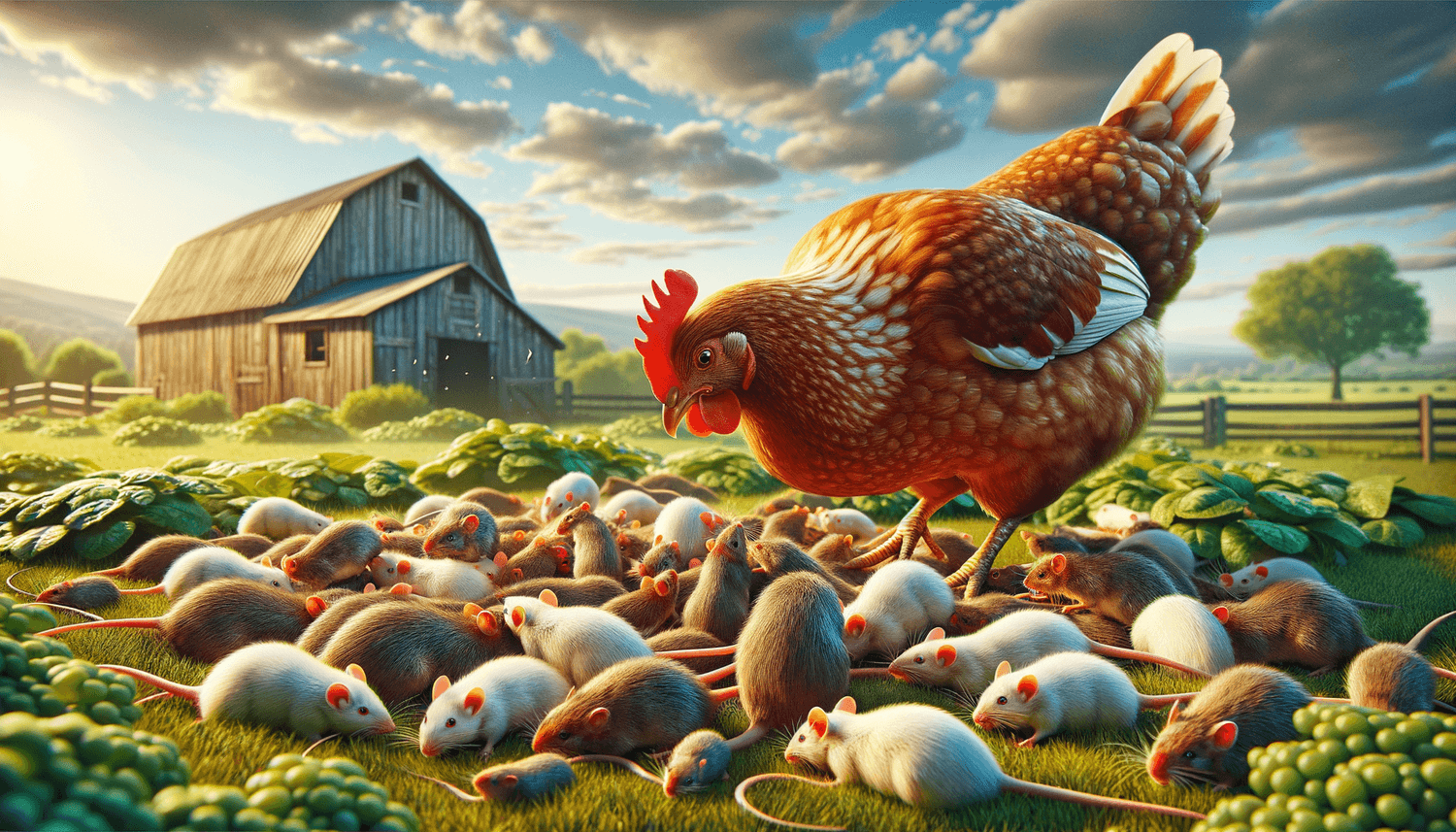Ever stumbled upon a mouse scurrying around in your backyard, and wondered, “Hmm, I wonder if my feathered flock can snatch up that little critter for a tasty treat?” Well, you’ve come to the right place! This delightfully intriguing blog post is about to scratch the surface on whether or not chickens can eat mice, the importance of a balanced diet, potential benefits and/or risks, nutritional value, and the most egg-citing way to prepare this unexpected meal!
Can chickens eat mice?
Yes, chickens can eat mice, and it is generally safe for them to do so. Chickens are omnivores and are naturally efficient at controlling pests like mice. Consuming mice can provide them with a good source of protein, and in moderation, it should not pose any significant risks to their health.
A balanced diet for our feathery friends
Just like us humans, chickens thrive on a balanced diet that provides them with the necessary nutrients to stay active, healthy, and laying those delicious eggs we all know and love. The cornerstone of a chicken’s dietary needs is a high-quality chicken feed, which should make up around 80-90% of their overall diet. This chicken feed is specially formulated to provide all the essential components like proteins, carbohydrates, fats, vitamins, and minerals that keep our feathery friends happy and healthy.
Of course, a little variety is always appreciated, and that’s where the remaining 10-20% of their diet can come into play. Feel free to supplement your chickens’ diet with a variety of treats like fruits, vegetables, and the occasional protein source like mealworms or, as we previously discussed, mice. Treats not only add excitement to their menu but also supply additional nutrients and encourage natural foraging behaviors. Just remember, moderation is key! A balanced diet is crucial for the well-being of your backyard chickens.
Nutritional value of mice for chickens.
Feeding mice to chickens can have some nutritional benefits, as mice are a good source of protein. Chickens naturally consume a variety of insects, worms, and small animals, which help supplement their protein requirements. Protein is crucial for the growth, development, and maintenance of tissues, as well as feather production and egg production in laying hens.
Mice are also a source of essential vitamins and minerals that support the overall health of your chickens. These nutrients aid in various body functions, such as bone maintenance, blood clotting, muscle function, and immune system support. Additionally, consuming prey like mice can satisfy a chicken’s natural foraging and hunting instincts, which can be beneficial for their mental well-being as well.
While offering mice to chickens can be a suitable supplementary snack, it’s important to consider the potential risk of bacterial or parasitic infection that may be associated with feeding wild prey. Providing well-prepared or commercially sourced mice can mitigate these risks, while still offering the nutritional and behavioral benefits to your flock.
Nutrition table of mice for chickens.
| Information | Description |
|---|---|
| Nutritional Value | Good source of protein, vitamins, and minerals |
| Suggested Serving Size | One mouse per chicken occasionally, as a supplementary snack |
| Safe Feeding Practices | Provide well-prepared or commercially sourced mice to minimize risk of infection |
| Preparation | Allow chickens to hunt live mice, or serve pre-killed mice in a clean area |
| Potential Risks | Possible bacterial or parasitic infection from wild-caught mice |
| Hydration | While mice may contain some moisture, chickens still require fresh water available at all times |
| Digestion | Chickens can digest mice easily as part of their natural diet |
| Seasonal Availability | Mice are more abundant in spring and summer, but can be found year-round |
| Other Benefits | Satisfies natural foraging and hunting instincts, promoting mental well-being |
Preparing mice for your chickens
When feeding mice to your chickens, there are a few different approaches you can take. If you have a mouse problem in your backyard, your chickens might be more than happy to hunt down the live mice and take care of the issue naturally. Just be sure that your backyard is safe from harmful pesticides or chemicals that could harm your chickens when they hunt.
On the other hand, if you would prefer to use commercially sourced frozen mice, make sure to follow proper thawing and handling guidelines to ensure the safety of your chickens. Once the mice have been thawed completely, you can provide them to your chickens using a clean feeding surface or container. This will help minimize the risk of bacterial or parasitic infection, as well as keeping your feeding area clean and organized.
Be mindful of your chickens’ overall diet
While mice can provide a valuable source of nutrition for your chickens, it’s important not to overdo it. Limit the frequency of feeding mice to your chickens, and ensure that the majority of their diet consists of a high-quality chicken feed. In addition, continue to supplement their diet with fruits and vegetables and other healthier treats, and always provide abundant fresh water for consumption and hygiene purposes.
Know your flock’s preferences
Finally, it’s worth noting that every chicken has its own individual taste preferences and habits. While some chickens may love the idea of a mouse treat, others may be less enthusiastic about it. It’s essential to observe your flock closely and cater to their particular needs and preferences. In the end, the goal should remain the same: to provide a balanced diet that promotes optimal health and well-being in your backyard chickens.

















